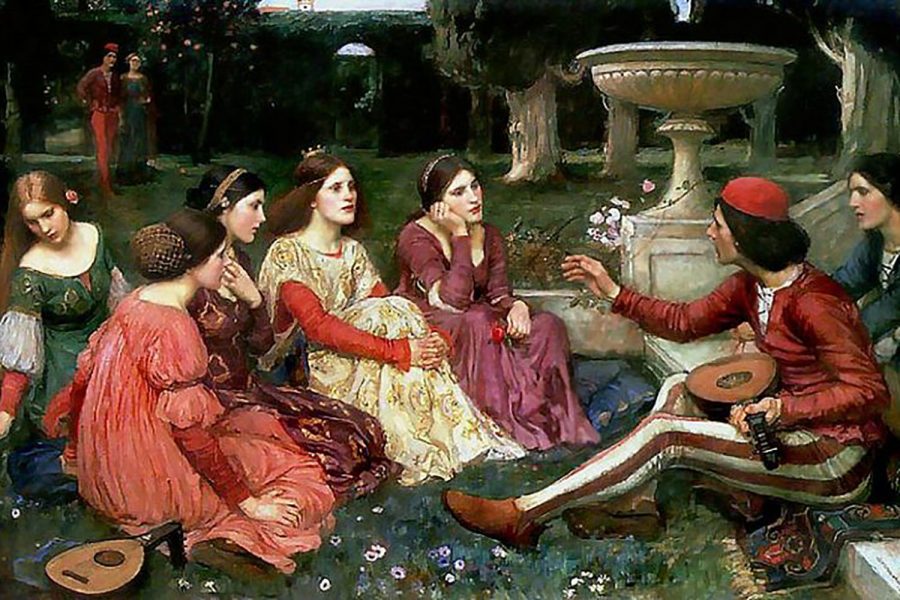100 Days of Decameron offers virtual book club amid pandemic
Iowa City of Literature plans to bring the community together by hosting a virtual group reading of Giovanni Boccaccio’s The Decameron.
April 1, 2020
In these lonely weeks of self-isolation and working from home, the status quo may seem far gone, a memory from a better time. Yet the arts community in Iowa City, a UNESCO City of Literature, continues to thrive, finding ways to bring the community together through virtual readings and works of theater, live-streamed music, and more. Launched on April 1, the Iowa City of Literature even began their first virtual book club.
Titled “100 Days of Decameron,” the project allows interested participants to take part in reading and meeting virtually to discuss Giovanni Boccaccio’s The Decameron, a book written at the same time the Black Death was consuming 14th-century Europe. The project is being led by Anna Barker, who works as an assistant adjunct professor at the University of Iowa and as a member of the City of Literature Board of Directors.
Barker has always told her students that there is a perfect book for every occasion, and the state of the world today was no exception for this book choice.
In Barker’s words, The Decameron tells readers that life moves on, and people find ways to cope.
“People can become very adaptable and have boundless capacity to adjust and to survive,” she said.
Barker said that the book will provide readers with much-needed structure as well as escapism from the news headlines of today. In addition, she said it can provide relief from isolation and help to build a community of readers.
Related: Iowa City grows after 10 years as City of Literature
Written between 1350 and 1352, The Decameron is a collection of 100 short stories told by a group of young people self-quarantining outside of Florence, Italy.
According to William Rhodes, an assistant professor of English at the University of Iowa, these tales range between several genres.
“It contains funny satires of social dysfunction, tragic love stories, heroic deeds, and tales of religious and moral import,” he said.
What unites them, he said, is their ability to display both idealized and realistic depictions of humanity in all its highs and lows.
The book is open to anyone in the community, and is even offered online in PDF format to those without a physical copy. That way, each participant can read from the comfort and safety of their own home. Barker will provide a written introduction to each set of ten tales on their website, and readers are encouraged to share their thoughts via the hashtag #100daysofdecameron.
According to John Kenyon, executive director of Iowa City UNESCO City of Literature, he hopes that the accessibility of the book will encourage the community to give it a try, and give them an opportunity to explore despite many self-isolating inside their homes.
“The stories that are found on the pages of books can take us to different places, and we are all growing tired of looking at the same walls as we are cocooned in our homes,” he said. “Opening a book is a great way to leave that for a while, to experience another life, another place, another time. It also builds empathy.”
The program runs from April 1 to June 30. Undoubtedly, the world will undergo massive amounts of change during that time, but 100 Days of Decameron is meant to provide consistency, distraction and entertainment.
The characters in The Decameron find solace in stories during times of crisis, and perhaps the readers of the book will be able to as well. In the words of Giovanni Boccaccio himself, “You must read, you must persevere…”














